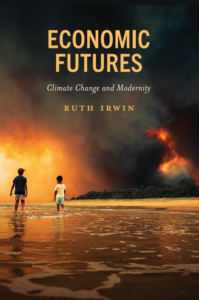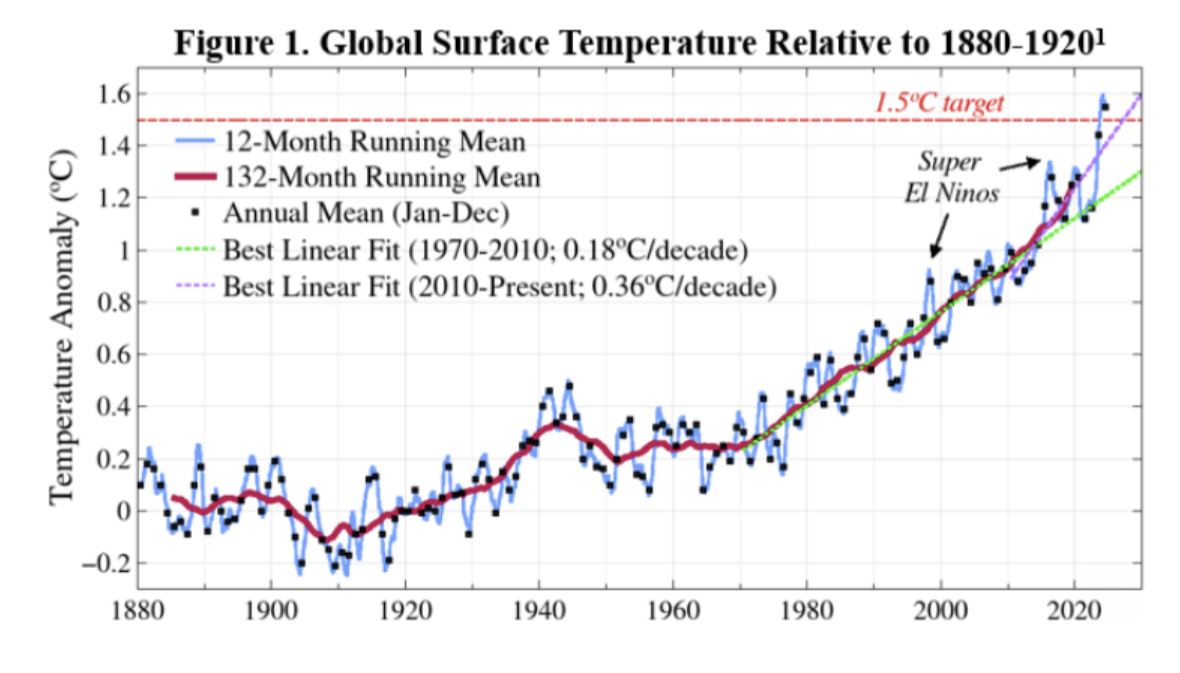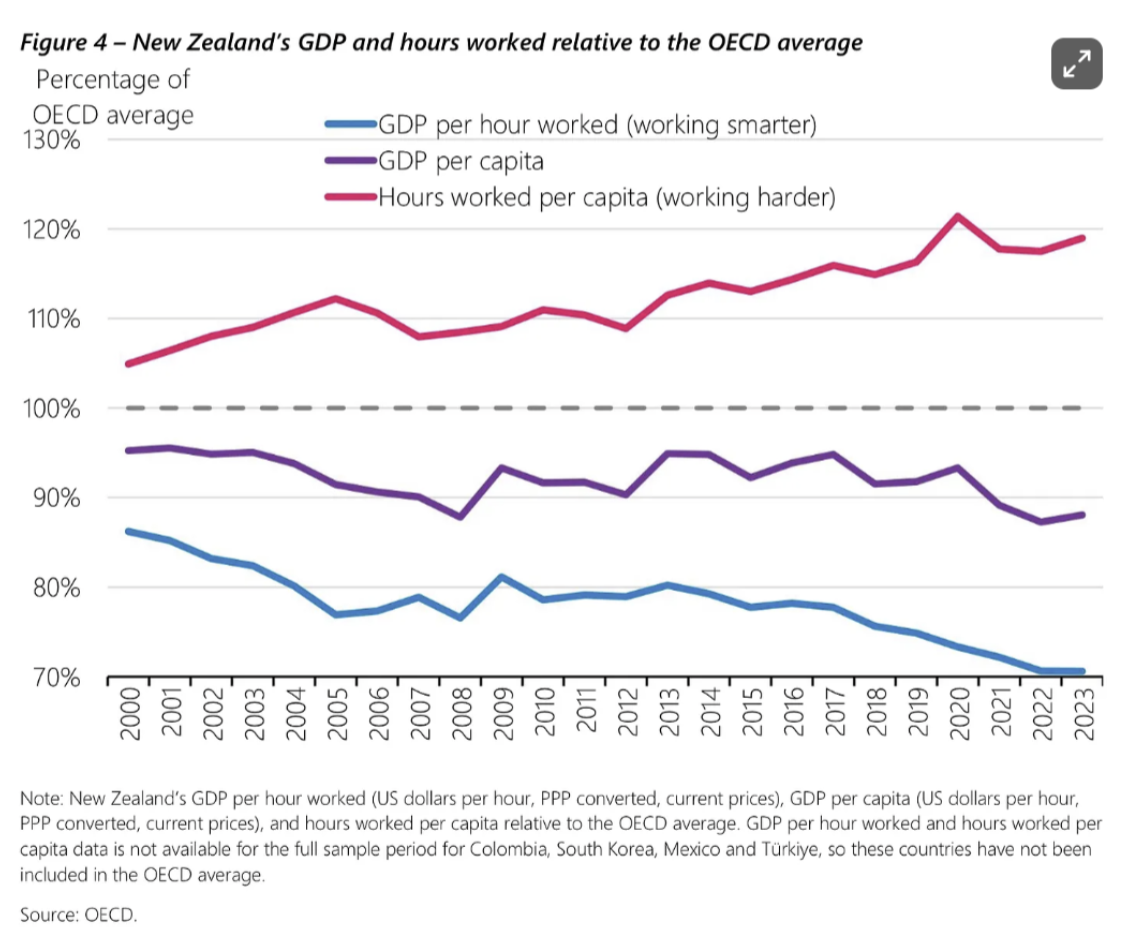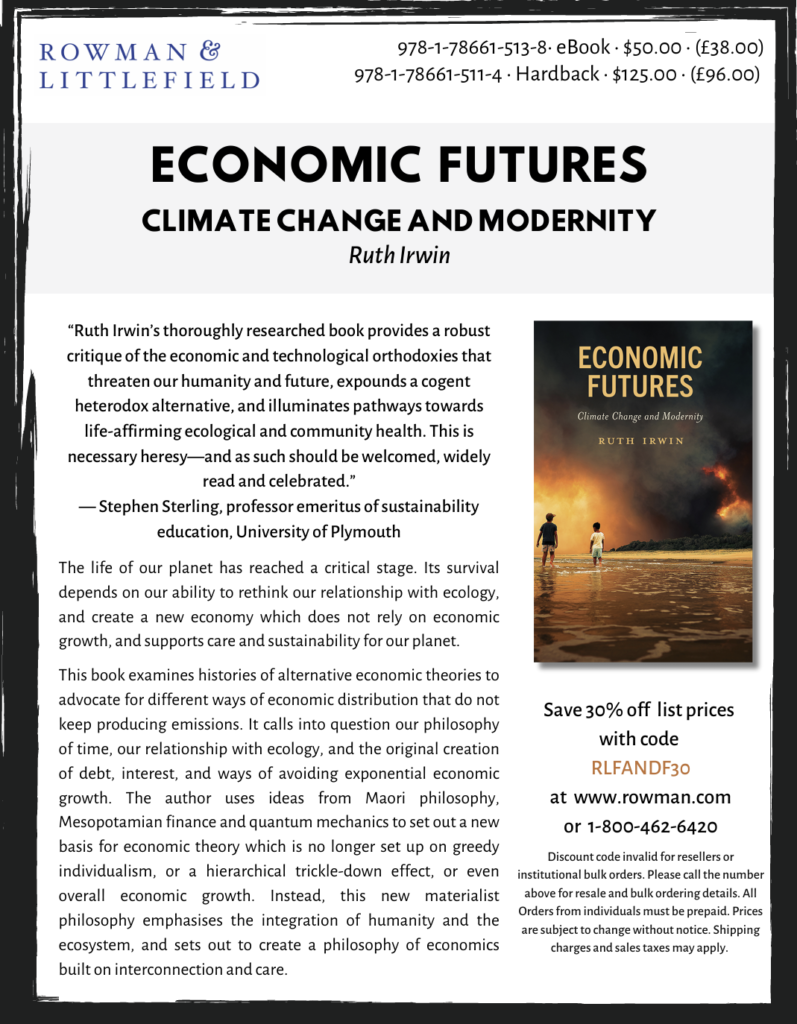 The world feels increasingly chaotic as right wing demagogues and their billionaire friends
The world feels increasingly chaotic as right wing demagogues and their billionaire friends
step into a political void. The old sense of political direction about free market vs
Keynesian Welfare State is increasingly redundant. Both left and right have been fully
committed to economic growth. But we were told by the Intergovernmental Panel on
Climate Change since 1987 that Business as usual causes an increase in climate
emissions. Exponential economic growth is accelerating Climate change. The right has abandoned any sense of stewardship and is creating chaos, so they can grab whatever mineral resources are available.
The left has been trying to continue Business-as-usual. Business-as-usual means
continuous global economic growth with faith in a progress. The problem is that for most
young people, the promise of progress no longer exists. The American dream, the New
Zealand dream, is that hard work will be rewarded. Those rewards are things that are
important in a modern world. Things like a house, a car, a refrigerator and so on. But for
young people, houses are too expensive. Consumer items are still possible. But
increasingly everyone is aware that there are very real existential threats to the
environment, to food and water security, and to the global supply chain. The basics are not
‛progressing.’ Progress is the cause of these alarming existential threats.
I recently published a new book called Economic Futures; Climate Change and Modernity.
It looks at the relation between exponential economic growth and accelerating climate
emissions. Then the drivers of economic growth cycles; credit, inflation, consumerism,
emissions. The next section is on entropy economics. Finally, a section on philosophy and
intraconnection with environment.

Fig. 1. Global surface temperature relative to 1880-2023 average. The 12-month running-
mean
extends through May 2023 (Hansen et al. 2025).
The Keynesian Settlement of growth in the postwar years is collapsing. Instead of
incremental improvement, capitalism seems to move faster and faster, the rich are
becoming super-rich, but the rest of us are going backwards. The assumption of progress
is dropping out of the lexicon. But the mantra of economic growth continues, even while
there is increasing poverty and homelessness, an aging population, falling birthrate,
resource exhaustion, forever chemicals, polluted water supply, and worsening climate
change. The New Zealand Prime Minister, Luxon recently gave a speech extolling
economic growth. He is no longer calling for ‛smart jobs’ or the ‛knowledge economy’. In
fact, like Trump, the New Zealand government has just inexplicably withdrawn all research
funding, and reduced support for universities. Luxon requires New Zealanders to work
harder and longer, to keep people on the economic growth wagon. But its only the
moneyed class that benefits from economic growth. Those with a house, with shares, with
a pension fund. Those with bitcoin or fine art. Those people are definitely committed to
economic growth. But for the generations below mid forties, the chance of getting on that
exponential growth cycle is very limited. Yet for survival, they are required to work harder
and harder.

Instead of fronting up, and grappling with the new polycrisis, left wing politicians seem
determined to continue the economic growth cycle. Partly this a commitment to historical
Keynesian economic growth, which was supposed to offer something to the working
classes. And partly it is a total lack of creative ideas about appetising alternatives. Lastly,
nobody seems to understand the impact of exponential growth. If you double the number of grains of rice on a chess board, you go from 1, to more than the entire planets crop in just 64 moves.
When Keynes first advocated the money multiplier as the stimulus for economic growth,
the incremental increase was on a very small baseline. By now, it is vast. Roosevelt
promoted the money multiplier as a solution to the 1930s Depression. The money
multiplier is generated through banking, who create new money ex nihilo, whenever they
create the credit for a new mortgage. Fractionated banking allows new credit to continue to
flow from bank to bank with a small amount reserved for insurance, and the rest
duplicating the credit process as it bounces from account to account. The Second World
War interrupted the project of peacetime economic growth. But it is now 75 years of
continuous, exponential economic growth since the 1950s. Each year the amount of
increase expands. 2-3% incremental increase of a some millions was merely thousands of
dollars of exponential increase in consumerism. By 2022 the amount of 2-3% incremental
increase is about 75 billion, world-wide. That is a lot of new consumerism, and a great
many tonnes of extra CO 2 . In 2023, global emissions increased by 1.1 %, resulting in 37.4
billion tons of CO 2. And each year it repeatedly gets larger.
It is important to understand how and why we are in this predicament. If we understand
how we got into this situation then creative politics that offers solutions to real world
problems can come about. At the moment, the right wing is exacerbating chaos to take
control of the last of earth’s resources, and the left is playing ‛see no evil, speak no evil,
hear no evil’ and making it impossible to talk about ‛degrowth.’ Personally, I dislike the
word degrowth. I think its really depressing, anti ‛progressive’ and an inaccurate
description of what needs to take place. So I use ‛postgrowth.’ Or better still, entropy
economics. But that is for another discussion. In the meantime, we need to understand
what fuels economic growth, so that we can safely disarm the exponential cycle.
Until we understand the driver of climate change and economic growth, left wing
governments all around the world, and ours is no exception, continue to approach the
accelerating issues of poverty, health, demographics, and environmental catastrophe, with
tired, unimaginative, old tools.
There are new ways to reimagine a new and better global economic settlement.
Contemplating the issues is the first step, and after recent cyclones and forest fires, people
are more ready to do that. But like climate change and World Peace, the solutions are
global in scale, and somewhat daunting.
1) Business-as-usual is causing climate change, extremes in poverty and wealth, over-
crowding, homelessness, resource exhaustion, water poverty, loss of faith in progress, and
falling birth rates.
2) Business as usual is exponential economic growth. Despite the commitments of the
Paris Agreement, it is causing the acceleration of climate emissions
3) Technological innovation is absorbed by economic growth and makes no long term
efficiency gain in climate emissions
4) To understand how, we need to revisit first principles of economics. We need to
understand the capital in capitalism.
5) Then we can visualise what postgrowth global trade might look like. An economic
system where efficiency means less emissions, not more profit. Where people consume
and work in moderation instead of exhaustion.
6) To get there we need to speak truth to power and change global legislation.
This requires the knowledge about what drives economic growth and its endemic cycles of inflation, consumerism and climate change to be understood at grass roots, everywhere.
From there the routes to a new eco-social settlement will become clear.
The book, Economic Futures; Climate Change and Modernity (2024) takes aim at the
issues outlined above. It develops a theory of entropy economics. The book draws very
well researched connections between exponential economic growth and accelerating
climate emissions. It delves into the history of economics, finance, and the concept of
money to re-examine first principles, discover why and how the modern economic growth
cycle is so entrenched, and open up a better understanding for a new future economic
system that does not cause climate change or many of the other polycrises. This book is a
call to action. I invite you to discuss the book, and to discuss and brainstorm ways to
activate these ideas in your local community, in the media, and in the political landscape.


